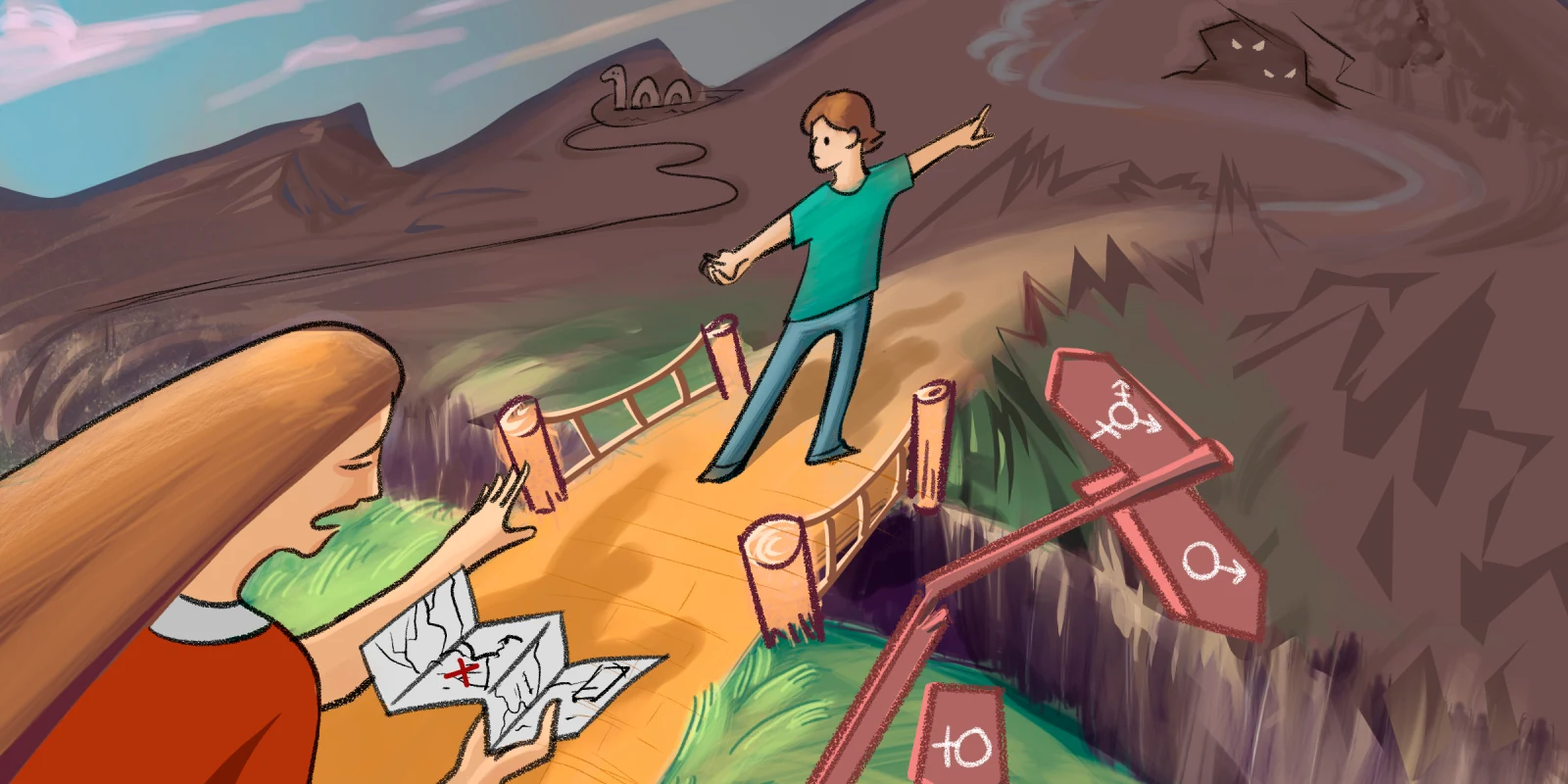I was born in Mobile, AL, on the edge of the Gulf where the water always feels close. I spent childhood summers rollerblading through Cottage Hill Park, chasing the ice cream truck for one last strawberry shortcake bar. I sat cross-legged on sidewalk pavements, cracking open boiled peanuts from the Shell on Airport Boulevard. I learned that people showed up for one another, even if they didn’t always understand you.
That’s the Alabama I know. That’s the version I stayed for. But now, my home is being reshaped by policies that insist people like me don’t exist. As a nonbinary medical student, I am learning to practice medicine while watching anti-transgender legislation harm my patients, my peers, and my future.
Earlier this year, Senate Bill 79 was signed, defining sex strictly by reproductive anatomy and legally erasing the existence of transgender and nonbinary Alabamians. This means that in the eyes of the law, a trans man is still categorized as female, his true identity erased in everything from driver’s licenses to medical records. This follows 2022’s Vulnerable Child Compassion and Protection Act, which made it a felony for physicians to provide gender-affirming care like puberty blockers and hormone therapy to minors. Supporters of these laws believe they are protecting the futures of “confused” children who are making spur-of-the-moment decisions about their bodies.
But the evidence tells a different story. The Trevor Project reports that more than half of transgender youth in the U.S. have seriously considered suicide in the past year. That’s not confusion; that’s terror. A study published in Nature Human Behavior found a 72% increase in suicide attempts among trans teens in states, including Alabama, that passed anti-trans laws. These statistics are more than just numbers. These are children who no longer see futures for themselves, all because the adults in power told them they don’t belong.
If being transgender were just a phase — if these kids were simply ‘misled’ — then denying them care would not push them to the brink. But it does.
The data is clear: when trans youth are blocked from accessing gender-affirming care, rates of depression, anxiety, and suicide attempts rise. When they are supported, those rates fall.
These laws are not protecting anyone. They are inflicting harm. They are not saving children. They are pushing them toward despair. You cannot claim to care about young people while writing policies that increase their risk of dying. Taking this care away does not stop kids from being transgender. It just makes it harder for them to survive.
I’ll never forget Alex, perched on the exam table, peeling at the edge of the paper liner with nervous fingers. He wouldn’t meet my eyes. He just stared at his shoes while his knee bounced uncontrollably. When he finally spoke, his voice cracked. “If I can’t be myself here, I don’t want to be here at all.” He was 16, transgender, and terrified. Not just of being misunderstood, but of not being allowed to exist as he truly is. He was scared that his very identity might be made a crime.
I’ve met parents who are leaving this state to protect their kids. I’ve seen patients skip appointments because they’re unsure if their clinicians are still willing, or even legally able, to help them. I’ve talked to medical students wondering whether they'll be allowed to prescribe hormone replacement therapy to any patients at all in the future given the confusion and fear of prosecution when it comes to Alabama’s legislation.
It is exhausting to practice medicine in a state that criminalizes compassion. Transgender and gender-diverse people deserve better. We deserve to be seen and treated with dignity, not defined out of existence by lawmakers who pretend they can’t see us. If Alabama wants to claim the moral high ground, it must begin by recognizing the humanity of every trans and nonbinary person who calls this place home — including me.
To my legislators: As a constituent, I do not agree to these laws. Let families make medical decisions with their doctors, not their politicians.
To my fellow medical professionals: silence is complicity. Our oath is to do no harm, not to stand by while others do it in our name.
And to every Alabamian who believes in faith, family, and freedom: your voice matters now more than ever. Call your state representatives and tell them you oppose this legislation. Support local organizations like the Magic City Acceptance Center and the Campaign for Southern Equality that are providing resources to trans youth.
We don’t have to agree on everything to agree on this: No child should feel so hated by their own state that they’d rather die than live here. Alabama doesn’t have to be a place that buries its children just to prove a point.
Trans kids deserve to grow up too.
Sunya Reddy is a fourth-year nonbinary medical student at the University of Alabama at Birmingham. The views expressed are their own and do not necessarily reflect those of their institution.
All patient details have been changed to protect privacy in accordance with HIPAA.
Illustration by April Brust







